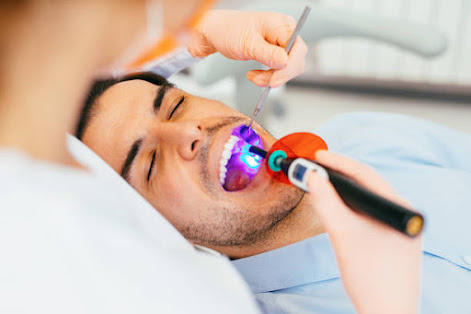How Long Do Dental Sealants Last?
What are Dental Sealants?
Dental sealants, a plastic coating applied to the chewing surfaces of molars and premolars, serve as a powerful defense against tooth decay. These sealants act as a protective shield, preventing acids and plaque from weakening the enamel. The deep grooves on these teeth can easily trap food particles, which, if left unaddressed, can transform into cavity-causing acids, leading to oral health issues.
The Importance of Dental Sealants
When it comes to safeguarding your child's dental health, dental sealants play a pivotal role. Explaining the significance of proper dental hygiene to children can be challenging, and expecting them to brush and floss correctly consistently might not always be realistic. Fortunately, dental sealants offer a non-invasive preventive treatment to minimize the risk of tooth decay. By sealing the tooth surface, they create a barrier that inhibits cavity-causing bacteria from contacting the enamel. This reduces the likelihood of your child developing cavities, ensuring long-term oral health.
Understanding the Lifespan of Dental Sealants
The durability of dental sealants is a crucial aspect to consider. With proper care, dental sealants can last for up to ten years. However, regular check-ups with your local dentist are vital to assess their condition and ensure their ongoing effectiveness. During routine dental appointments, your dentist will examine the sealants, determining whether they are still intact. If they have worn down excessively or become damaged, your dentist can easily reapply the sealants as needed.
Maintenance and Reapplication
While dental sealants can last a considerable amount of time, their effectiveness diminishes over their lifespan. It is recommended to have dental sealants reapplied every two to four years to maintain optimal protection against decay. The continuous chewing forces exerted on the molars contribute to the gradual wear and tear of the sealants, necessitating regular reapplication.
Regular dental visits are essential to prevent decay-causing bacteria from becoming trapped under damaged or excessively worn sealants. It is advised to schedule check-ups every six months, allowing dentist in your area to evaluate the condition of the sealants and address any concerns promptly.
Encouraging your child to adopt oral habits that preserve the sealants is crucial. Discourage behaviors that could damage the sealants, such as chewing on ice, biting their nails, or using their teeth to open packages. By promoting good oral hygiene practices and making necessary lifestyle adjustments, you can significantly contribute to the longevity and effectiveness of dental sealants.
Ensuring Lasting Protection
In conclusion, dental sealants offer a valuable preventive measure, particularly for children and teenagers more prone to cavities. While their lifespan can reach up to ten years, regular dental check-ups and reapplications every two to four years are recommended to ensure long-lasting protection. Collaborating closely with your dentist and promoting proper oral hygiene routines can effectively shield your child's teeth and support their enduring oral health.



Comments